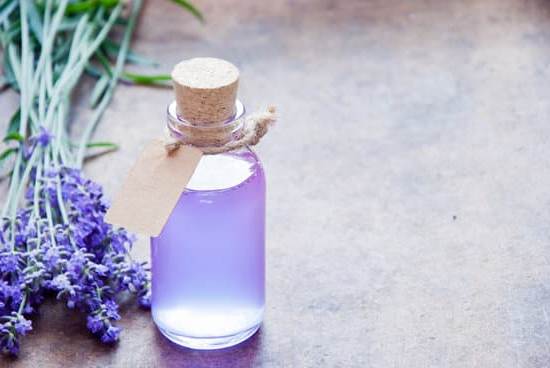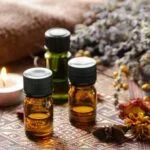Are aromatherapy diffusers medical devices? Aromatherapy is a centuries-old practice that uses the natural oils extracted from flowers, bark, stems, leaves, roots, or other parts of a plant to enhance psychological and physical well-being. Diffusers are commonly used to disperse these essential oils into the air for inhalation. In this article, we will explore the relationship between aromatherapy diffusers and medical devices to understand their regulatory status and role in healthcare.
Aromatherapy has gained popularity as a natural and holistic approach to promoting relaxation, improving sleep, reducing stress, and managing various health conditions. The use of diffusers has made it easier for individuals to enjoy the benefits of essential oils by releasing them into the air in their homes or other spaces. However, with the increasing interest in aromatherapy, questions have been raised about whether these diffusers should be considered medical devices and regulated accordingly.
In this comprehensive exploration, we will delve into the fundamental principles of aromatherapy and diffusers while also examining what constitutes a medical device and how they are regulated. Additionally, we will discuss how aromatherapy diffusers work, the potential risks associated with their use, and how they differ from medical-grade devices.
By the end of this article, you will have a better understanding of the role that aromatherapy diffusers play in healthcare and whether they should be classified as medical devices.
What Are Medical Devices and Their Regulations
A medical device is any instrument, machine, implant, or reagent used for diagnosis, prevention, monitoring, treatment, or alleviation of disease. These may comprise a wide range of items from simple tongue depressors and bandages to advanced prosthetics and life support equipment. Medical devices are regulated by the Food and Drug Administration (FDA) in the United States and equivalent regulatory bodies in other countries to ensure their safety and effectiveness.
Regulations for medical devices differ depending on their classification. For instance, Class I devices have lower risk and are subject to general controls such as establishment registration and device listing. These controls help ensure the quality of design, testing, manufacturing, labeling, sales distribution, installation, servicing and planned maintenance of medical products.
On the other hand, Class II & III devices undergo more stringent regulations including premarket notification before marketing a new product. This process involves establishing that the new device is substantially equivalent to a legally marketed device that is not subject to premarket approval.
In summary, the FDA’s regulations for medical devices aim to guarantee their safety while still allowing for innovation in healthcare technology. This oversight helps protect patient health and ensures that healthcare providers have access to safe and effective medical tools.
| Classification | Regulatory Controls |
|---|---|
| Class I | General Controls such as establishment registration and device listing. |
| Class II & III | Premarket notification before marketing a new product. |
How Aromatherapy Diffusers Work
Aromatherapy diffusers are devices that disperse essential oils into the air, allowing for easy inhalation and absorption of the oils’ aromatic properties. There are several types of diffusers, including ultrasonic, nebulizing, heat, and evaporative diffusers. Ultrasonic diffusers work by using water and ultrasonic vibrations to create a fine mist of essential oil and water particles that are released into the air.
Nebulizing diffusers use pressurized air to break down the essential oil into smaller molecules, while heat diffusers use heat to evaporate the essential oil. Each type of diffuser has its own unique way of dispersing oils, but they all work to release the aromatic compounds and therapeutic benefits of the essential oils.
The process of diffusion allows for the inhalation and absorption of essential oil molecules through the respiratory system or skin. When inhaled, these molecules stimulate the olfactory system in the brain which can have a variety of positive effects on mood, stress levels, mental clarity, and overall well-being. Additionally, when absorbed through the skin (in cases such as massage therapy), essential oils can offer localized benefits and contribute to overall relaxation and skin health.
The use of aromatherapy diffusers can provide various benefits including stress relief, improved sleep quality, mental alertness, alleviation of headaches or migraines, respiratory support, and mood enhancement. Different types of essential oils also offer different benefits; for example, lavender may help with relaxation while peppermint is commonly used for increased alertness and mental clarity. As such, understanding how aromatherapy diffusers work is critical in harnessing their potential therapeutic effects.
| Type | Description |
|---|---|
| Ultrasonic Diffuser | Uses water and ultrasonic vibrations to disperse essential oils as a fine mist. |
| Nebulizing Diffuser | Utilizes pressurized air to break down essential oils into smaller molecules. |
| Heat Diffuser | Evolves essential oils using heat. |
| Evaporative Diffuser | Allows airflow to naturally carry the scent around. |
The Benefits of Aromatherapy and Diffusers
Aromatherapy has been used for centuries as a holistic healing treatment. Aromatherapy is the practice of using essential oils to enhance physical and mental well-being. The use of aromatherapy diffusers has become increasingly popular as a way to enjoy the benefits of essential oils through inhalation. These diffusers work by dispersing the essential oil molecules into the air, allowing them to be inhaled and absorbed by the body.
The benefits of aromatherapy and diffusers are wide-ranging and can have a positive impact on overall health and wellness. Some of the key benefits include:
- Stress relief and relaxation
- Improved sleep quality
- Mood enhancement
- Respiratory support
- Immune system enhancement
Aromatherapy diffusers offer a convenient way to enjoy the therapeutic effects of essential oils without having to apply them directly to the skin or ingest them orally. By releasing a fine mist of essential oil particles into the air, these devices create a soothing ambiance that can help alleviate stress, anxiety, and promote overall well-being. Additionally, diffusers can also help eliminate odors in the home, creating a clean and pleasant environment.
In recent years, research has begun to validate the use of aromatherapy as an effective complementary therapy for various health conditions. While not a substitute for medical treatment, aromatherapy has been shown to have potential benefits for certain ailments and can be used in conjunction with traditional medical care for an integrated approach to wellness. As a result, aromatherapy diffusers have gained attention as valuable tools in promoting health and well-being.
Are Aromatherapy Diffusers Regulated as Medical Devices?
Aromatherapy diffusers are devices that disperse essential oils into the air, allowing users to benefit from their therapeutic properties through inhalation. While they are commonly used for relaxation and stress relief, some people also use them for medical purposes, such as to alleviate respiratory symptoms or improve sleep quality.
Medical devices are defined by the FDA as instruments, apparatuses, machines, implants, reagents for in vitro use, software, and accessories intended to diagnose, prevent, monitor or treat medical conditions. These devices are regulated to ensure their safety and effectiveness in improving public health.
When it comes to aromatherapy diffusers, they are not typically regulated as medical devices by the FDA because they are not intended for medical use. Instead, they are considered consumer products designed for general well-being and relaxation.
However, it is important to note that there are certain types of aromatherapy diffusers that may be classified as medical devices if they claim specific health benefits or functions beyond providing a pleasant aroma. Regardless of classification, consumers should always consult with a healthcare professional before using any aromatherapy products for medicinal purposes.
- Aromatherapy diffusers work by breaking down essential oils into small particles and dispersing them into the air.
- These particles can then be inhaled and absorbed through the respiratory system or skin to produce various therapeutic effects.
- Some common types of aromatherapy diffusers include ultrasonic diffusers, nebulizing diffusers, heat diffusers, and evaporative diffusers.
Overall, while aromatherapy diffusers may offer potential health benefits when used properly, it is essential for consumers to understand the distinctions between these devices and medical grade equipment. Additionally, individuals should be aware of any potential risks associated with the use of essential oils and take appropriate precautions to ensure their safe and effective use.
The Difference Between Aromatherapy Diffusers and Medical Grade Devices
Aromatherapy diffusers are commonly used in homes, offices, and healthcare settings to disperse essential oils into the air for therapeutic purposes. These devices come in various forms such as ultrasonic diffusers, nebulizing diffusers, and heat diffusers. While they are often used to promote relaxation, reduce stress, and improve well-being, it is important to understand the difference between aromatherapy diffusers and medical grade devices.
Functionality and Intended Use
One of the main differences between aromatherapy diffusers and medical grade devices is their functionality and intended use. Aromatherapy diffusers are specifically designed to disperse essential oils into the air to create a pleasant aroma and promote relaxation. They are not intended for the diagnosis, prevention, or treatment of any disease or medical condition. On the other hand, medical grade devices are specifically manufactured and labeled for use in the diagnosis, treatment, or monitoring of medical conditions.
Regulatory Approval
Another key difference between aromatherapy diffusers and medical grade devices is the level of regulatory approval they undergo. Medical grade devices must meet specific regulatory requirements set forth by national health authorities such as the Food and Drug Administration (FDA) in the United States or the European Medicines Agency (EMA) in Europe.
These requirements ensure that medical devices are safe and effective for their intended use. In contrast, aromatherapy diffusers are not subject to these stringent regulatory requirements since they are not considered medical devices.
Clinical Evidence
The use of medical grade devices is typically supported by clinical evidence obtained from rigorous scientific studies. This evidence demonstrates the safety and effectiveness of these devices in managing specific health conditions. In contrast, while there is some evidence supporting the benefits of aromatherapy for certain health issues such as anxiety or pain management, it is important to note that aromatherapy diffusers themselves are not considered medical interventions due to a lack of robust clinical evidence supporting their efficacy.
In summary, while both aromatherapy diffusers and medical grade devices play a role in promoting health and well-being, it is important to recognize that they serve different purposes with distinct levels of regulatory oversight and clinical evidence supporting their use. Understanding these differences can help individuals make informed decisions about their healthcare choices related to aromatherapy and other wellness practices.
Potential Risks and Precautions With Aromatherapy Diffusers
Potential Risks of Aromatherapy Diffusers
Aromatherapy diffusers are generally safe to use, but there are some potential risks associated with their use. One of the main concerns is the improper use of essential oils in the diffuser, which can lead to allergic reactions or skin irritation. Some people may also experience respiratory issues if they are sensitive to certain fragrances or have asthma. Additionally, there is a risk of accidental ingestion of essential oils, especially when used in households with young children or pets.
Precautions for Safe Use
To minimize the potential risks associated with aromatherapy diffusers, it is important to take certain precautions when using them. First and foremost, it is crucial to read and follow the manufacturer’s instructions for the specific type of diffuser being used.
It is also recommended to use high-quality, pure essential oils and avoid overexposure by using the diffuser in well-ventilated areas and for limited periods of time. Proper storage of essential oils is also essential to prevent accidental ingestion.
Consultation With Healthcare Professionals
Individuals with pre-existing health conditions or those who are pregnant should consult with a healthcare professional before using aromatherapy diffusers. This is especially important for individuals who are undergoing medical treatment or taking medications that may interact with certain essential oils. Seeking guidance from a qualified healthcare provider can help ensure safe and effective use of aromatherapy diffusers for health and wellness purposes.
Conclusion
In conclusion, while aromatherapy diffusers are not classified as medical devices, they do play a significant role in healthcare. The use of essential oils and diffusers can provide numerous benefits for individuals, such as stress relief, relaxation, improved sleep, and mood enhancement.
These therapeutic effects can contribute to overall well-being and may complement traditional medical treatments. However, it is important for consumers to understand the distinction between aromatherapy diffusers and medical grade devices in order to make informed decisions about their health and wellness.
Aromatherapy diffusers are not subject to the same regulations and standards as medical devices, which means that there may be variations in quality and safety among different products. It is crucial for consumers to carefully research and choose reputable diffuser brands that prioritize product safety and efficacy.
Additionally, it is important for individuals to be aware of potential risks associated with essential oil use, such as skin irritation or allergic reactions. Consulting with a healthcare professional before using aromatherapy products is advisable, especially for those with pre-existing health conditions or sensitivities.
Overall, aromatherapy diffusers can be a valuable addition to a comprehensive healthcare routine when used responsibly. Understanding the benefits, limitations, and potential risks of aromatherapy can help individuals make informed choices about incorporating these products into their wellness practices. By recognizing the role of aromatherapy diffusers in promoting relaxation and emotional well-being, consumers can harness the potential of these products to support their overall health.
Frequently Asked Questions
Is Aromatherapy Considered Medical?
Aromatherapy is not considered a medical treatment, but it is often used as a complementary therapy to support overall well-being. The use of essential oils in aromatherapy is believed to have various therapeutic benefits, such as reducing stress and anxiety, promoting relaxation, and improving mood.
While some people find it helpful for managing certain symptoms or conditions, aromatherapy should not be used as a substitute for medical treatment.
Are Diffusers Allowed in Hospitals?
Diffusers are generally not allowed in hospitals due to concerns about potential allergic reactions or sensitivities among patients, visitors, and healthcare staff. Hospitals have strict guidelines in place to protect the health and safety of everyone in the facility.
The use of diffusers may also interfere with the hospital’s ability to maintain a specific and controlled environment for patient care.
Can I Bring a Diffuser to the Hospital?
It is best to check with the hospital’s policies before bringing a diffuser onsite. While some hospitals may make exceptions for specific cases or circumstances, most will likely prohibit the use of diffusers on their premises due to potential health and safety concerns.
It is important to respect the policies of the hospital and consider alternative methods for promoting relaxation or managing stress during visits or stays at healthcare facilities.

Are you looking for a natural way to improve your health and wellbeing?
If so, aromatherapy may be the answer for you.





